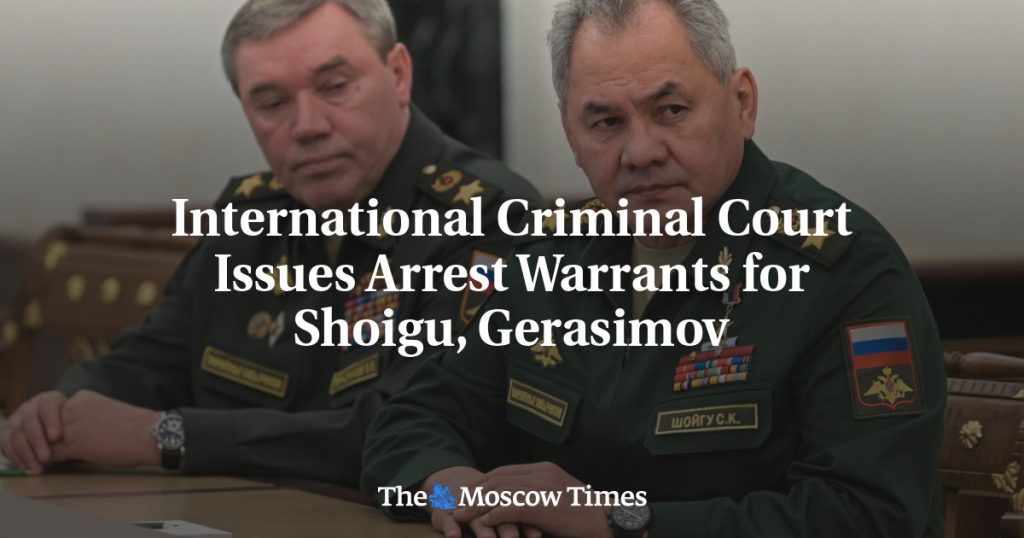The International Criminal Court (ICC) issued arrest warrants for Russia’s Chief of the General Staff Valery Gerasimov and former Defense Minister Sergei Shoigu on Tuesday, accusing them of war crimes and crimes against humanity committed in Ukraine. The warrants were in response to allegations of directing attacks at civilian structures and causing excessive incidental harm to civilians. The ICC judges found reasonable grounds to believe that the suspects were responsible for missile strikes against Ukrainian electric infrastructure from October 2022 to March 2023, which targeted civilian objects and caused excessive civilian damage.
Ukraine welcomed the ICC’s decision, with President Volodymyr Zelensky’s Chief of Staff Andriy Yermak stating that everyone involved in such crimes will be held accountable. However, Russia’s Security Council, headed by Shoigu, dismissed the arrest warrant as insignificant, claiming that the ICC’s jurisdiction does not cover Russia and describing the decision as part of the West’s hybrid war against their country. This response echoes Moscow’s previous stance when the ICC issued an arrest warrant for President Vladimir Putin last year over the alleged abduction of children from Ukraine.
The ICC, based in The Hague, does not have its own police force to enforce arrest warrants and relies on its 124 member states to carry them out. Individuals under ICC warrants may be prevented from traveling to member states for fear of arrest. Despite the warrants against him, Putin has traveled to non-ICC member countries such as China, Vietnam, Kyrgyzstan, Saudi Arabia, and the United Arab Emirates over the past year. However, he did skip a BRICS summit in South Africa last summer, which would have likely enforced the warrant had he attended.
Russia’s dismissal of the ICC’s arrest warrants reflects a pattern of defiance towards international institutions that have accused Moscow of committing war crimes and crimes against humanity. Moscow has previously deemed ICC rulings against its officials as void and even issued its own warrant against the ICC president in retaliation. The current response from Russia’s Security Council further reinforces the Kremlin’s rejection of international legal mechanisms, framing them as tools used by the West in a hybrid war against Russia.
The ICC’s decision to issue arrest warrants against top Russian officials is a significant development that highlights the growing international pressure on Moscow over its actions in Ukraine. While the warrants may not have immediate enforcement mechanisms, they signal a willingness by the international community to hold those responsible for alleged war crimes and crimes against humanity accountable. The response from Russia, dismissing the warrants as insignificant and part of a broader geopolitical conflict, underscores the deepening divide between Moscow and international legal institutions. This ongoing standoff raises questions about the effectiveness of international justice in holding powerful state actors to account for their actions on the world stage.


